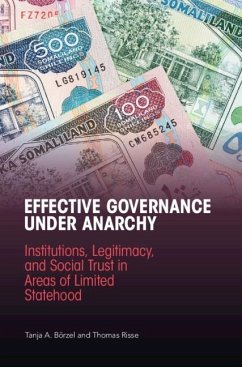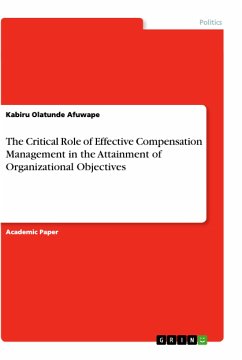Policy makers and academics alike have mistakenly promoted an agenda which takes well-governed democratic and consolidated 'Weberian' states as the model for the world and the goal of development programs. Whilst Western industrial democracies are the exception, areas of limited statehood where state institutions are weak and ineffective, are everywhere, and, this books argues, can still be well-governed. Three factors explain effective governance in areas of limited statehood: Fair and transparent institutions 'fit for purpose,' legitimate governors accepted by the people, and social trust among the citizens. Effective and legitimate governance in the absence of a functioning state is not only provided by international organizations, foreign aid agencies, and non-governmental organizations but also by multi-national companies, rebel groups and other violent non-state actors, 'traditional' as well as religious leaders, and community-based organizations. Borzel and Risse base their argument on empirical findings from over a decade of research covering Latin America, the Middle East, Sub-Saharan Africa, and Asia.
Dieser Download kann aus rechtlichen Gründen nur mit Rechnungsadresse in A, B, BG, CY, CZ, D, DK, EW, E, FIN, F, GR, HR, H, IRL, I, LT, L, LR, M, NL, PL, P, R, S, SLO, SK ausgeliefert werden.









